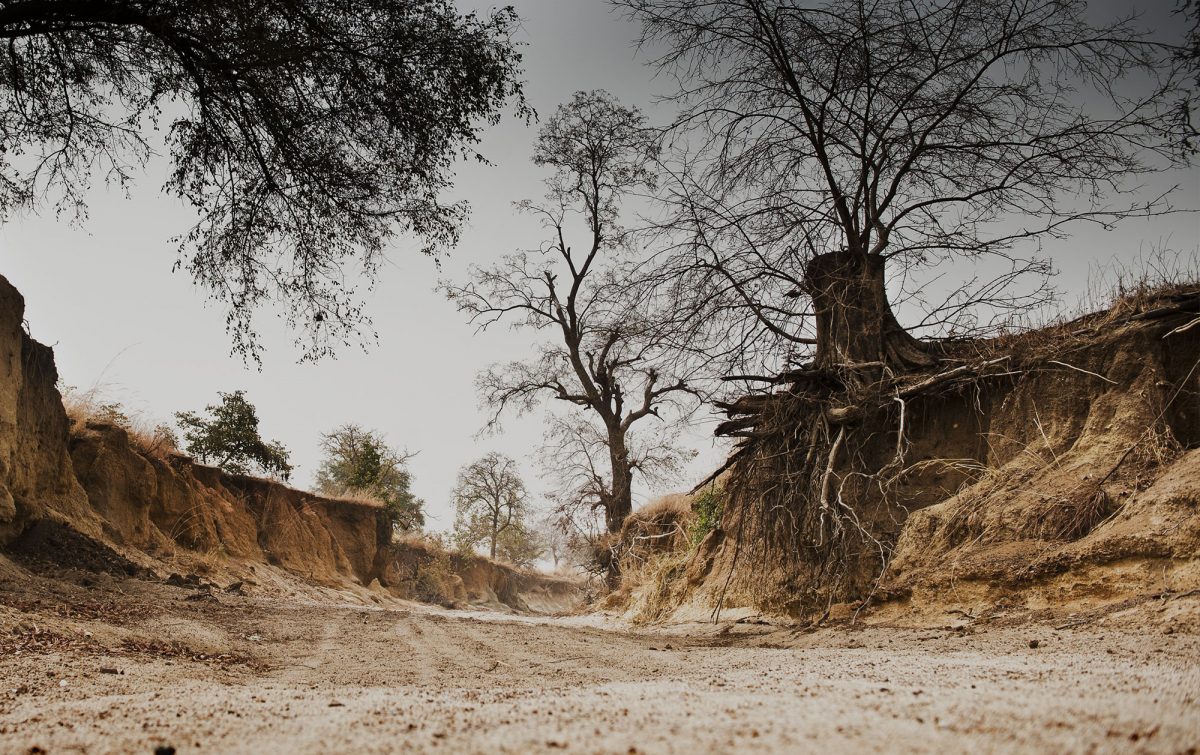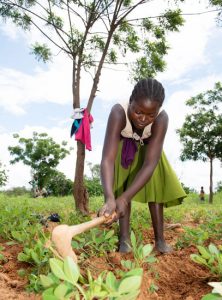Pragmatic solutions for climate protection
Burkina Faso is severely threatened by climate change. The increasing pressure of use due to high population growth and unsuitable land use methods have led to a severe degradation of agricultural land. At the same time, biodiversity is declining, as is the possibility of wild collections of food crops.
In times of drought, the land dries out additionally and fertile areas erode. In order to make the replanting of wasteland successful, we build stone walls around the fields together with the small farmers. In the rainy season, the heavy rainfall is thus collected and the landscapes can revive.
Using fallow land for agriculture instead of forests
When a farmer’s family is looking for new areas for their agriculture without success, the original forest full of berts is usually cleared by fire. The most effective and simplest form of climate protection is to cover the demand for arable land by recultivating wasteland. The new vegetation also cools the earth and additionally reduces water evaporation from the soil.
With the construction of stone walls, the collected rainwater is available to people, animals and plants. The farmers can cultivate desolate land again and secure food and income for the families of their villages.
Without acute countermeasures, the devastation caused by the erratic distribution of rainfall, long dry periods and heavy rainfall will continue.
Greening drought areas again - with the help of neighbourly solidarity communities.
5000
CO2 tons bound
30.000
Farmers and helpers
€5.5 million.
Donations and subsidies
We start new projects in regions with high population density. In the provinces of “Boulkiemdé” (North) and “Sanguié” in the “Centre Ouest” region, without our measures, the densely forested Gunstregionen in the South Sudanese climate zone will be completely destroyed by over-exploitation and looting within a few decades.
- 28 municipalities in southwest Burkina Faso have already successfully implemented adaptation to climate change
- 11,000 farmers were advised on climate protection measures and supported in their implementation.
- Rainwater is collected for vegetation and the water cycle is restored
- Plant and care for 80 trees per hectare
- Trees and plants act as air conditioning for our planet









